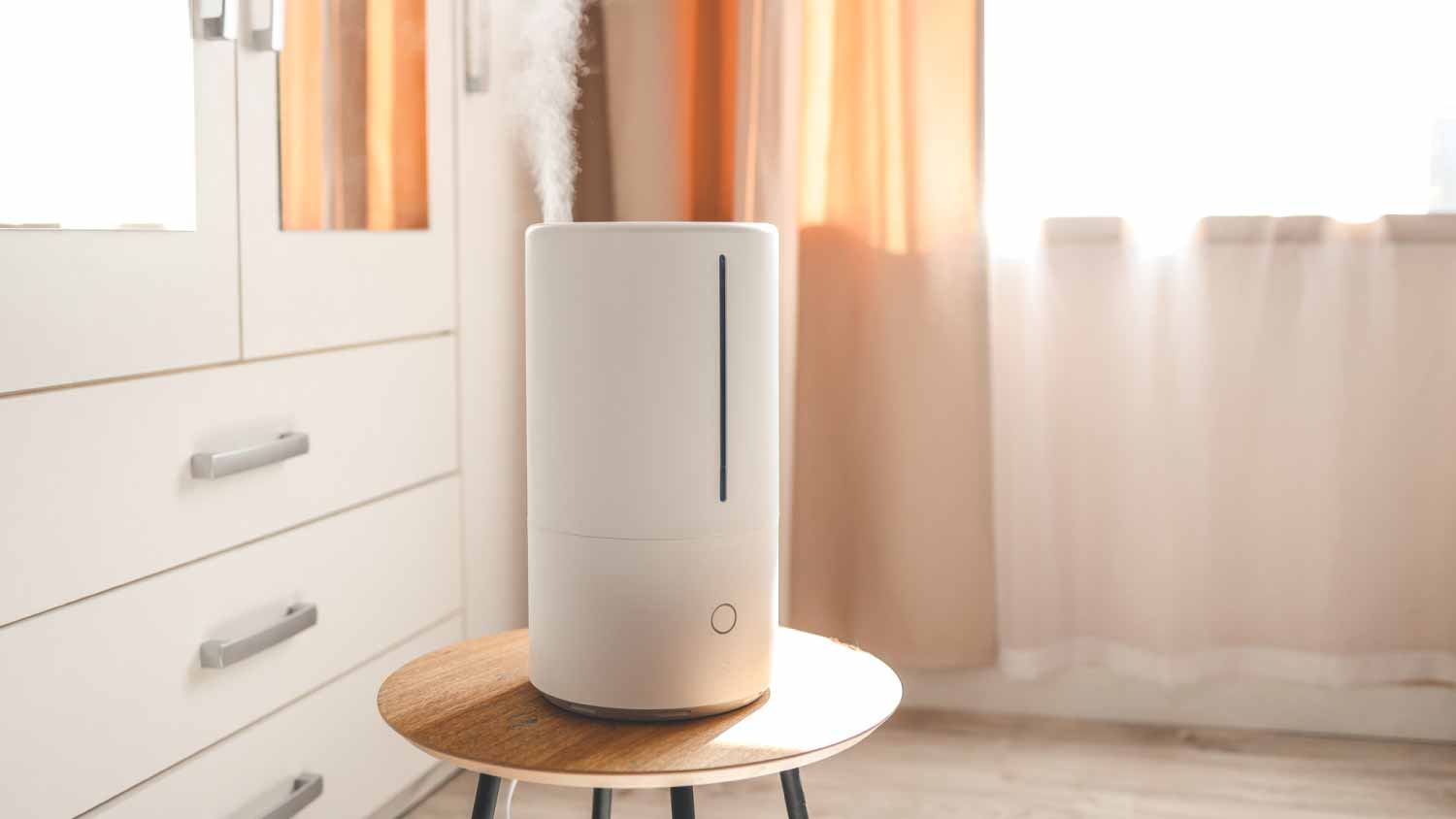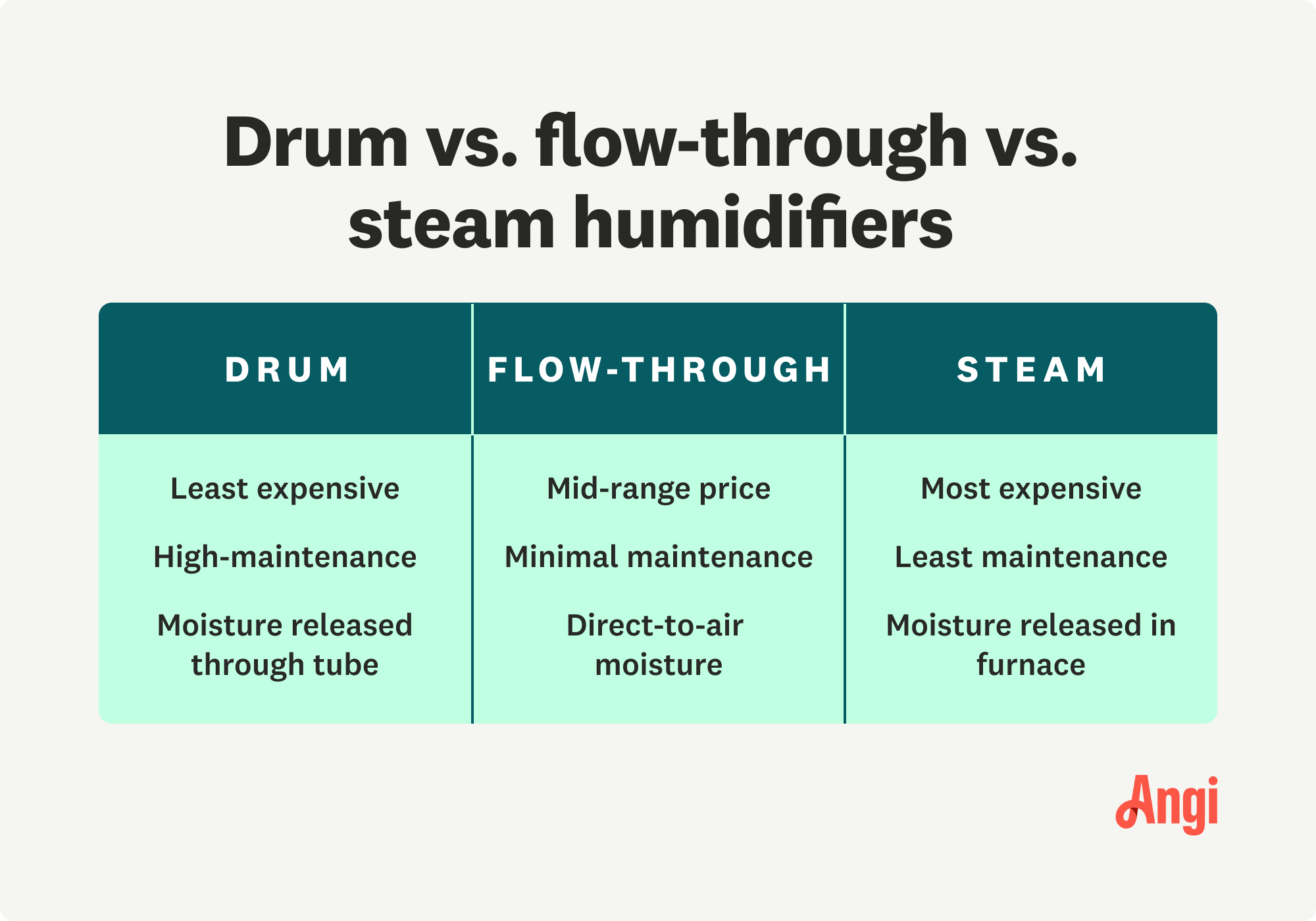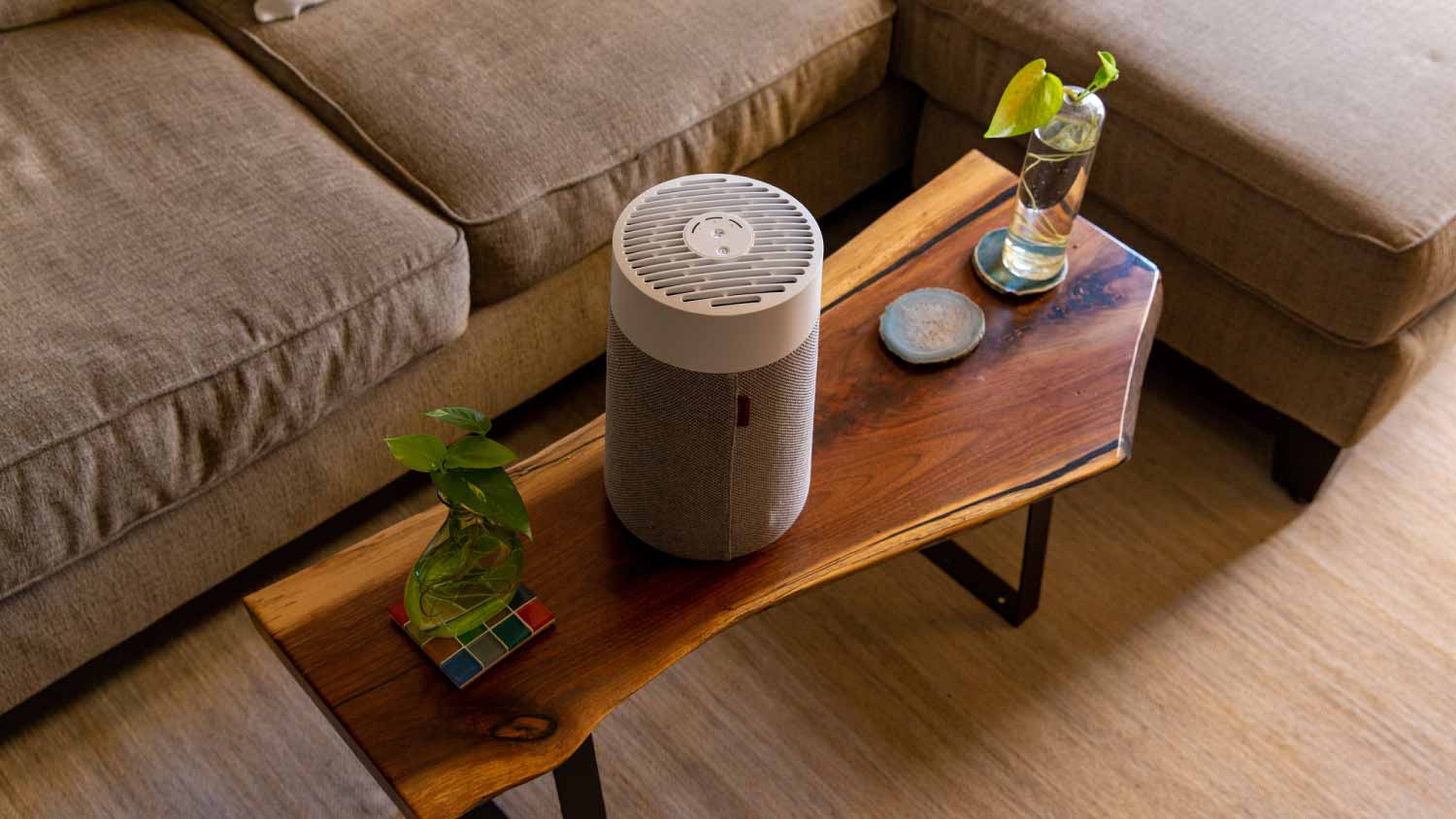
Inspections are an essential part of furnace maintenance. Prevent inconvenient breakdowns by budgeting for furnace inspection costs and repairs.
Let’s clear the air on humidifiers vs. air purifiers


Humidifiers add moisture to air, while purifiers remove pollutants from air.
The device that’s best for you will depend on allergy symptoms and air quality conditions.
Humidifiers are best for homes in dry climates or people with sensitive skin.
Purifiers are best for homeowners with respiratory conditions.
Humidifiers and purifiers are easy to confuse—in most cases, both are portable machines used to improve a home’s air quality. However, each appliance is used for different reasons and can improve specific conditions related to air quality, from dry skin to asthma or allergies. Read our guide to decide whether a humidifier or purifier is best for you.
The main difference between a humidifier and a purifier is that a humidifier adds moisture to the air while a purifier removes pollutants and allergens from it. Both devices can improve the air quality inside your home, but they serve different purposes.
Homeowners have the option to install a whole-house humidifier, which provides additional moisture to every corner of your home. This method eliminates dry indoor air conditions by sending moist air through your home’s ductwork system. On the flip side, you can also install a whole-house air purifier, which provides start-of-the-art purification throughout your home.

Simply put, a humidifier adds moisture into the air to help relieve dry skin, scratchy throats, and nasal congestion. The process of adding moisture to the air varies by type of humidifier, but they use water to create a fine mist that adds water molecules to the air.
| Pros | Cons |
|---|---|
| Relieves dry skin | Requires regular cleaning |
| Reduces static electricity | Requires filtered water |
| Helps prevent respiratory infections | Can lead to mold growth |
| Improves comfort | Can be noisy |
Best for:
Homes in dry climates
Households without allergies or respiratory concerns
People with dry skin or skin conditions

Say you live in Arizona and you have eczema. A humidifier, especially a whole-house humidifier, can put moisture back into the air inside your home so that your skin isn’t as dry year-round. It can also prevent respiratory infections, as the added moisture helps relieve dry throats, nasal congestion, and sinus discomfort. These symptoms are particularly frequent for people who have asthma or who are more susceptible to the common cold.
Any time you’re adding water to an appliance in your home, there’s a chance for mold to grow if it’s not cleaned or maintained properly. Since most humidifiers use a tank of water, it’s important to clean it out and replace the water regularly so mold spores don’t spread and cause the air quality of your home to decrease.
This regular maintenance can become a nuisance if you don’t have the time to manage it. Humidifiers can also be noisy when running, so keep that in mind if you have small children or light sleepers who may be affected by it churning out mist.

An air purifier removes harmful contaminants from the air to improve its quality. It works by drawing air in through vents or gills, then using lights or filters to trap or eliminate particles that contain dust, pollen, pet dander, and bacteria. Once the air is properly filtered, it’s pushed back out through a vent.
| Pros | Cons |
|---|---|
| Improves air quality | Expensive |
| Eliminates odors | Requires regular maintenance |
| Reduces allergens | Can be noisy |
| Improves sleep | May need multiple units |
Best for:
Pet owners
People with respiratory conditions
Homes in urban areas
Homes with mold issues
The top benefit of an air purifier is that it improves the air quality in your home by getting rid of common contaminants and allergens that can affect your health. The technology within an air purifier can remove common odors that permeate your home, such as scents from cooking, pets, smoke, and other chemicals. Air purifiers not only reduce allergens and eliminate odors, but also improve your sleep since you’ll have less respiratory-related symptoms, such as congestion or sore throat.
Most air purifiers are single units that can only filter the air in a specific room, so you may need multiple in order to service your entire house. This can get pricey, as the cost of an air purifier ranges from $200 to $900, depending on the size and model. You can opt for a whole-house air purifier, which comes at a higher cost of $430 to $4,950, depending on size and filter type. They can also be noisy and require regular replacement of filters and maintenance, which can add to the overall cost.
Here’s a look at how humidifiers and purifiers measure up in a range of categories, from appearance to price and ease of installation.
Let’s be honest: You’re not going to purchase a humidifier or air filter for its high design. Neither are going to add to the overall aesthetic of your home, but both have come a long way in blending into the background so as not to draw attention.
Most air purifiers can last anywhere from five to 10 years, so long as they’re maintained well. Humidifiers typically last three to five years, possibly less if they’re used on a daily basis. If you’re looking for a long-lasting model, go with the purifier.
Single-room humidifiers can run as low as $30 per unit for the most basic model. Air purifiers are closer to $200 a unit for the same capacity. Even the cost of whole-house humidifiers is less than whole-house air purifiers, coming in at a range of $390 to $765.
Whether you’re investing in a single-room humidifier or purifier or whole-house units, both options require equal amounts of effort to install. Of course, you should hire your local humidifier installation or purifier installation company to put in a whole-house system, but both require about the same amount of time and professional help to put in place.
Most air purifiers require a simple filter change a few times a year, while humidifiers require more consistent cleaning and water replacement to prevent mold growth. It may cost more to purchase air purifier filters and replace them, but it takes less time than humidifier maintenance.
From average costs to expert advice, get all the answers you need to get your job done.

Inspections are an essential part of furnace maintenance. Prevent inconvenient breakdowns by budgeting for furnace inspection costs and repairs.

What you’ll pay in Columbus, OH, for furnace repairs depends on many factors. Here’s a breakdown of what can go wrong and the cost to fix those issues.

Here's what you can expect when getting an estimate for coolant leak repair costs. The cost can vary based on the detection method used, the source of the leak, and the amount of damage that needs to be repaired in the aftermath.

Need to purchase a new gas furnace but aren’t sure which type is right for your home and needs? Taking a little bit of time to research furnaces to see which option is right for you can save you money over time. Here’s a look at five furnace types.

Not sure who to hire to install radiant floor heating? Learn which pros handle radiant floor heating installation and how the work comes together.

Not sure which kind of thermostat is best for your home? Here’s an overview of three types of thermostats so that you can choose the right one for you.